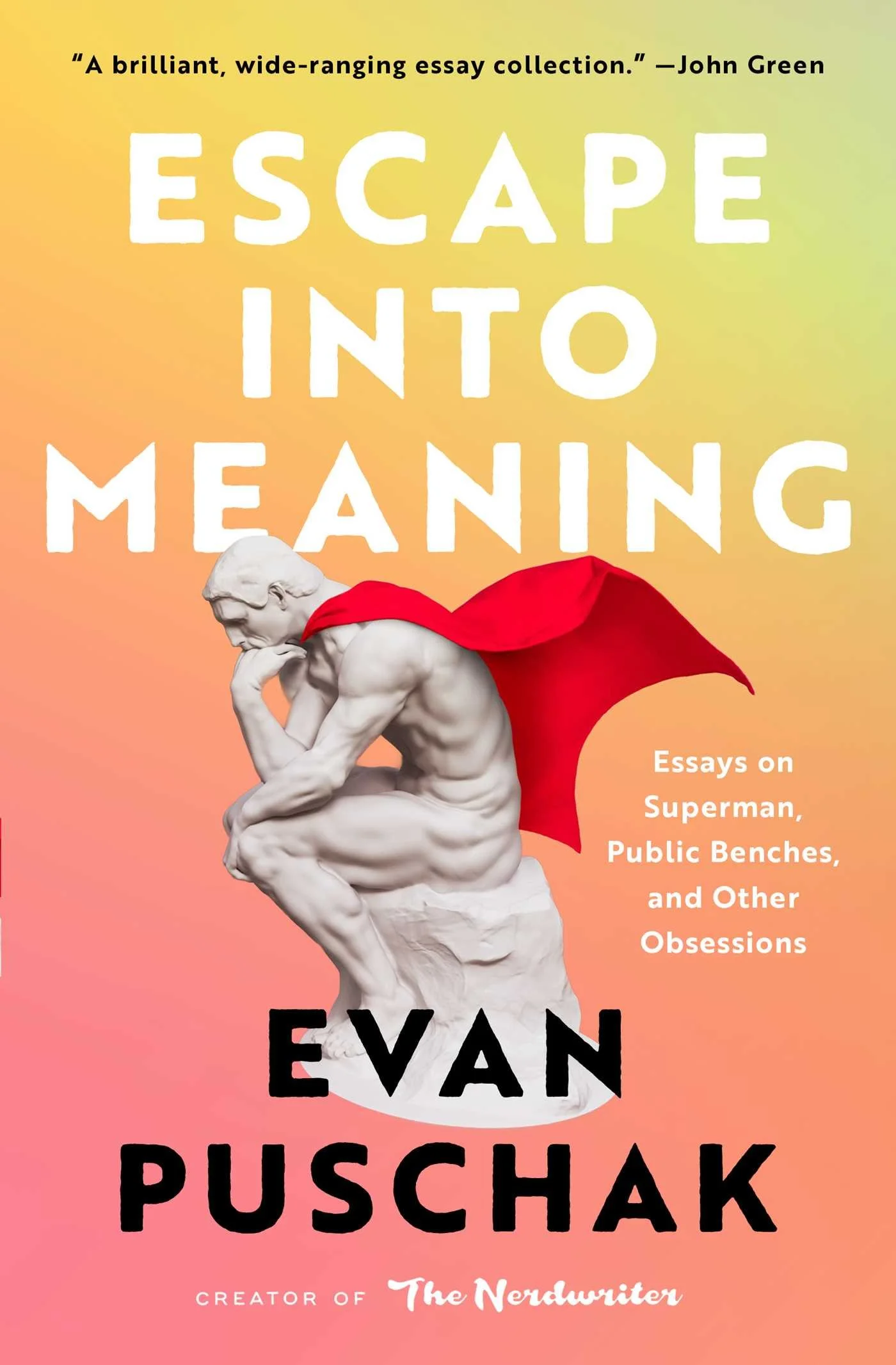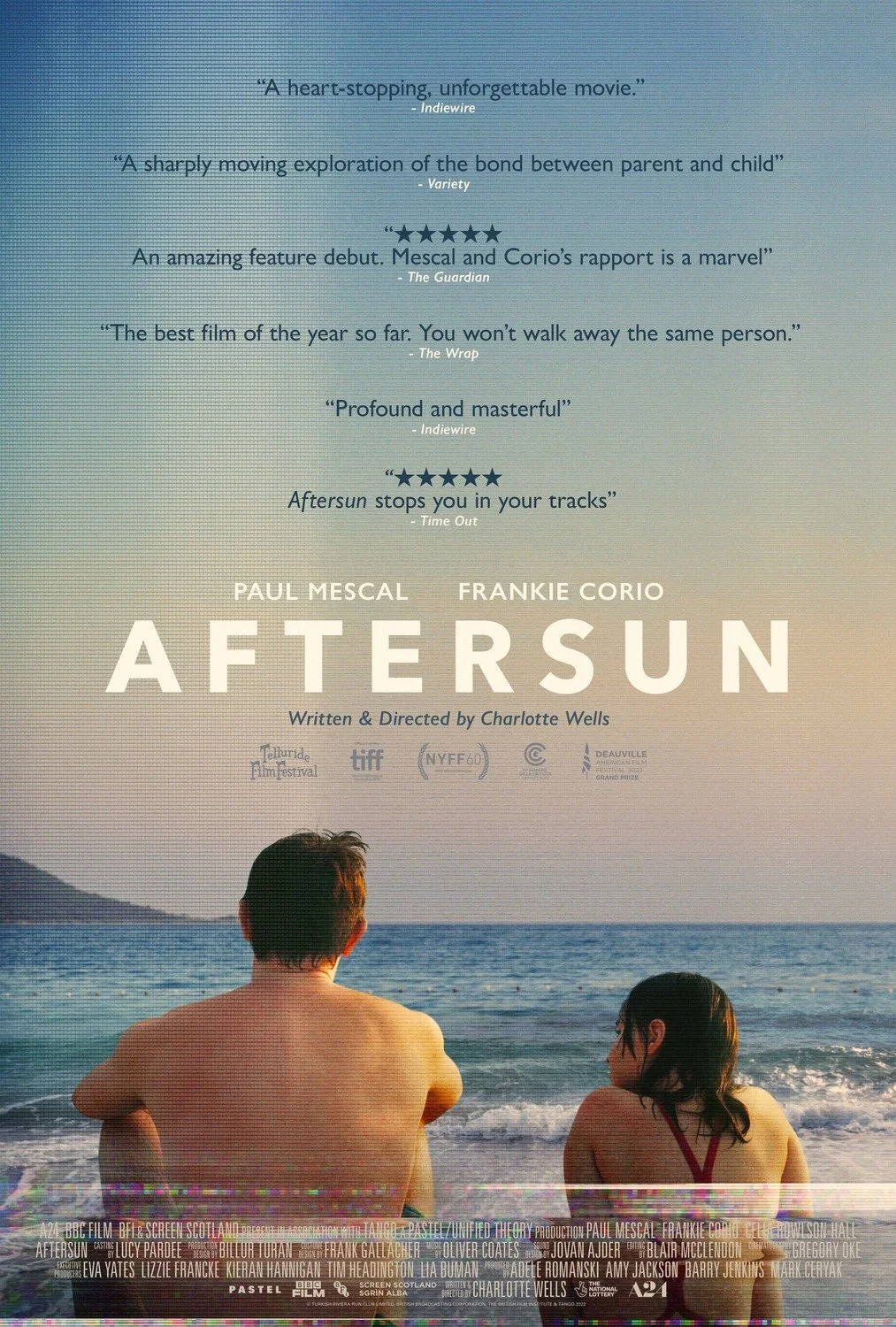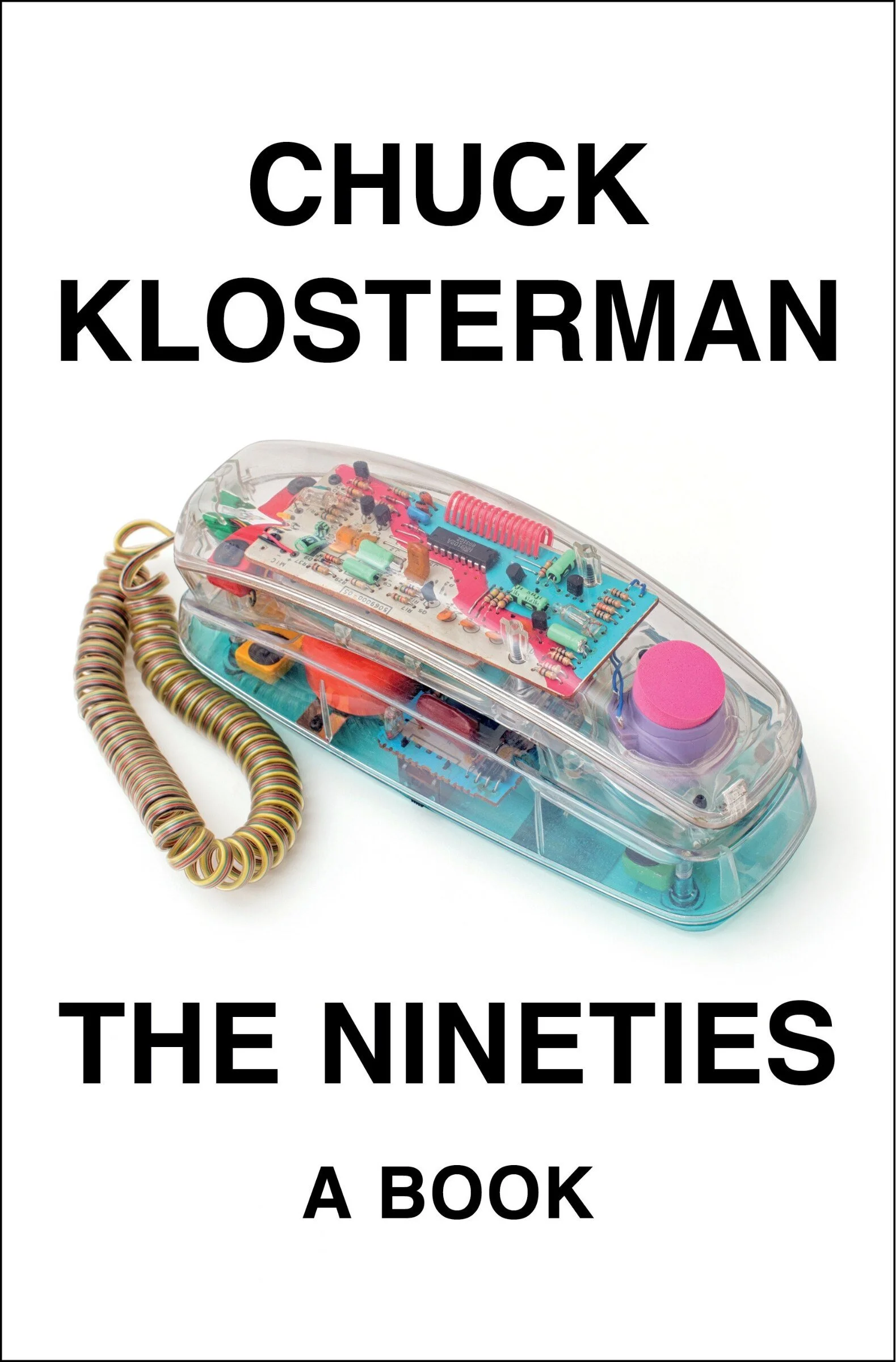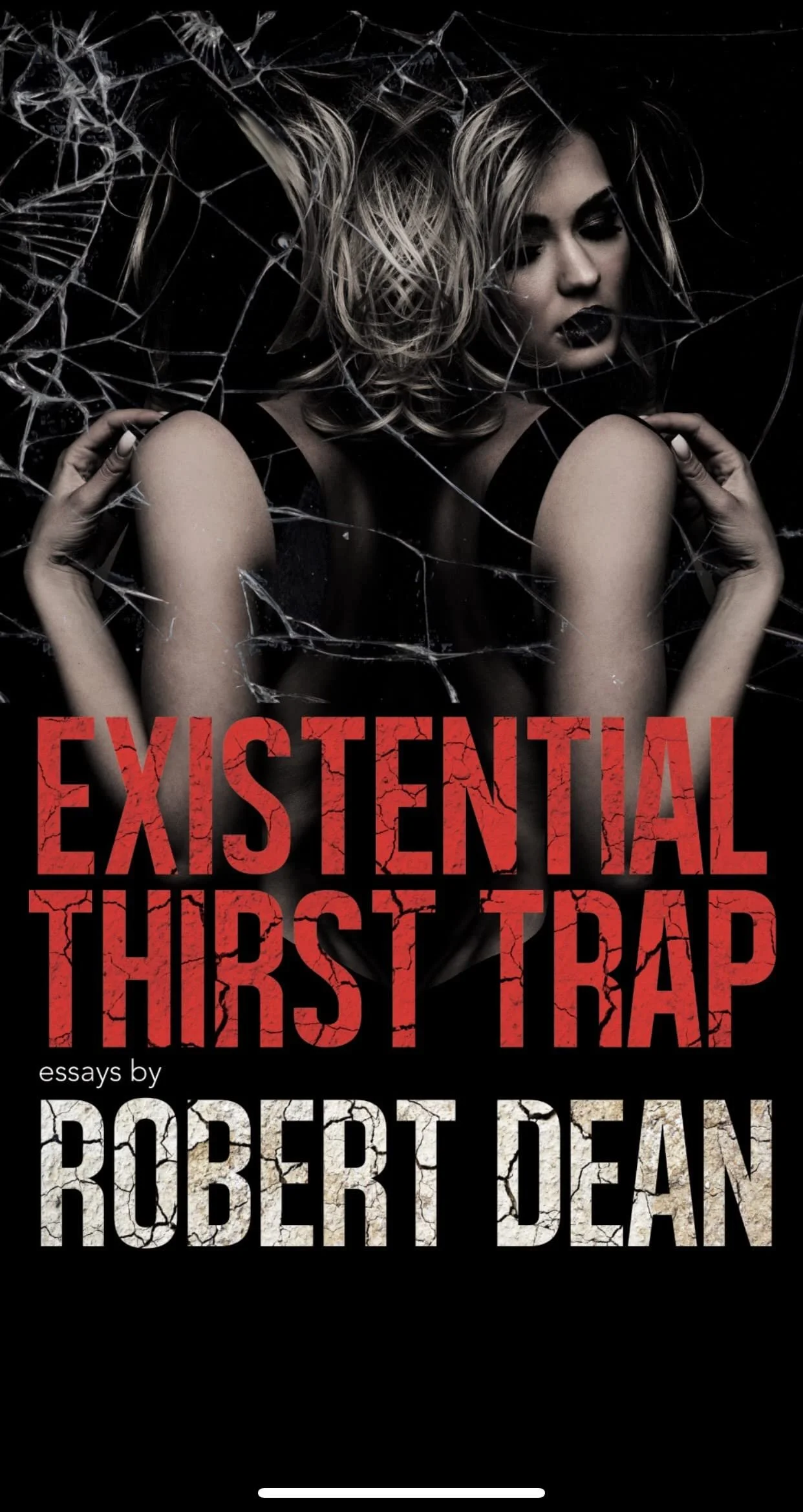Book Review : Evan Puschak - Escape Into Meaning (2022)
My journey as a YouTube power user began with Nerdwriter. The video essays of Evan Puschak opened up a world of like-minded nerds who like to overthink art to me. Not an Academic by any stretch of the imagination, he's like an artsy, self-taught friend who never runs out of conversation topics. A conversion from video essays to actual written essays was a natural leap for him to make and it's exactly what he did with his ever sharp and utterly personal debut collection Escape Into Meaning.
Now, how do you review an essay collection that doesn’t have an overarching theme to properly speak of? I’m not going to go over every essay individually evaluate whether or not I agree with Evan Puschak’s ideas. That would be dumb (although I’ve done it before). Essays are more complicated than that from an artistic perspective because they are thematically linked whether it is conscious or not. Escape Into Meaning is a book about what Evan Puschak cares about. You’ll care about them too if you care about him.
I sure do as a Nerdwriter enthusiast.
Being Greater Than The Sum of Your Parts
The overarching theme of Escape Into Meaning is finding your place in the world through art. Connecting with other people, but most importantly to yourself through cinema, literature, comedy, etc. The most glaring example would be the titular essay about Lord of the Rings, which celebrates the joy of losing yourself in a world that has proven moral order. Whether the good people are good, the bad people are evil and whether the virtuous are rewarded for standing up to peril and oppression. A world that "makes sense".
Puschak shrewdly uses it as a counterpoint to his other essay The Comforts of Cyberpunk, which is about letting go of these feeling of powerlessness about the state of the world and embracing the comforting idea that you only have to take care of yourself in a world that is wildly out of control. The two essays discuss art as an existential exit strategy against the pressure of modern living. Something that means to entertain, but more than that. That needs to be felt, inhabited and shared emotionally.
I found that stance comforting. It made me feel less alone as a passionate person investing myself in other people’s art.
The opening essay Emerson’s Magic tackles this idea from the opposite angle. It’s not him inhabiting the world of J.R.R Tolkien and Ridley Scott, it’s the ideas of OG essayist Ralph Waldo Emerson inhabiting him and transforming the way he thinks about the world. Although I’m not well-versed in Emerson, this essay rang true and empowering to me as it discussed literature almost as this virus that makes people more engaged with life and all around better. Evan Puschak understands the beauty of interacting with art very well.
The Best Thing You've Ever Read About Jerry Seinfeld
The best essays in Escape Into Meaning are at the end of the collection, though. My favorite was, ironically, about a comedian I really don’t care for: Jerry Seinfeld. Just like Chuck Klosterman did with Pavement and Stephen Malkmus, Evan Puschak explored a relatable side to a guy who doesn’t necessarily want to come off as relatable. In Seinfeld’s case: his discomfort with the idea of engaged humour and the fact that by disengaging himself with the idea of a message, it inherently gives his comedy one.
Because the foundational idea of Jerry Seinfeld’s comedy is that he doesn’t make political or ideological judgement, He just observes behaviour and absurdity and trusts his audience to draw their own conclusions. That kind of trust is empowering. It creates bonds just like Tolkien, Scott, Emerson and all the others do in their own way. This essay reconciled me with my own feelings towards "engaged" comedians like John Oliver who espouse the whole: if you don’t find me funny, you’re stupid and evil shtick.
I don’t need to feel righteous. Neither does Jerry Seinfeld.
*
If Nerdwriter videos are like having a conversation with an absurdly smart, self-taught friend, Escape Into Meaning feels like reading his diary. Although he technically talks about art, Evan Puschak is revealing himself a lof in this collection. It’s sometimes quite personal and even vulnerable. It is, in the words of David Foster Wallace, a dialogue between consciousnesses in the purest sense of the term. You need to be open to such a dynamic in order to enjoy the book, but it’s a good time if you are.






